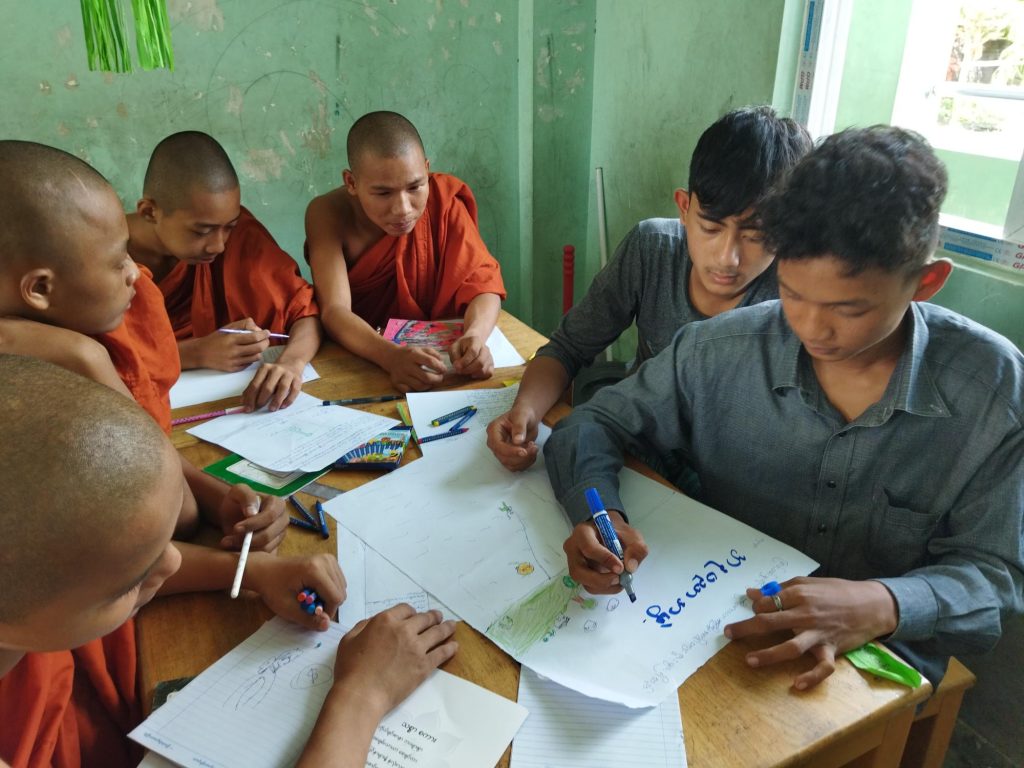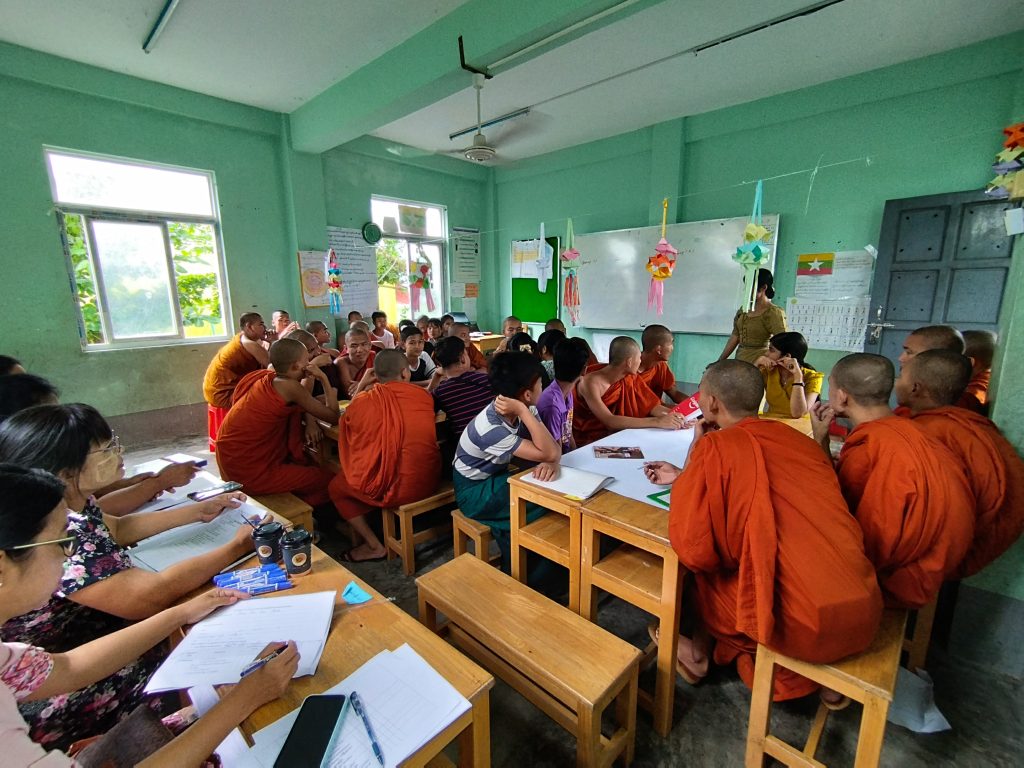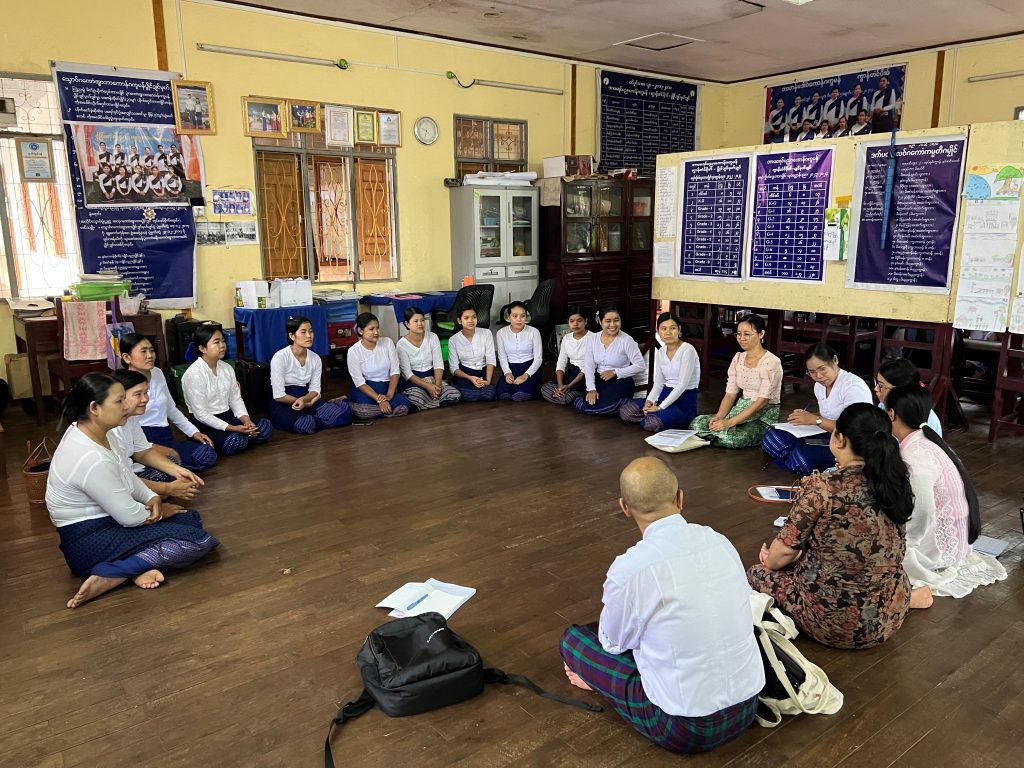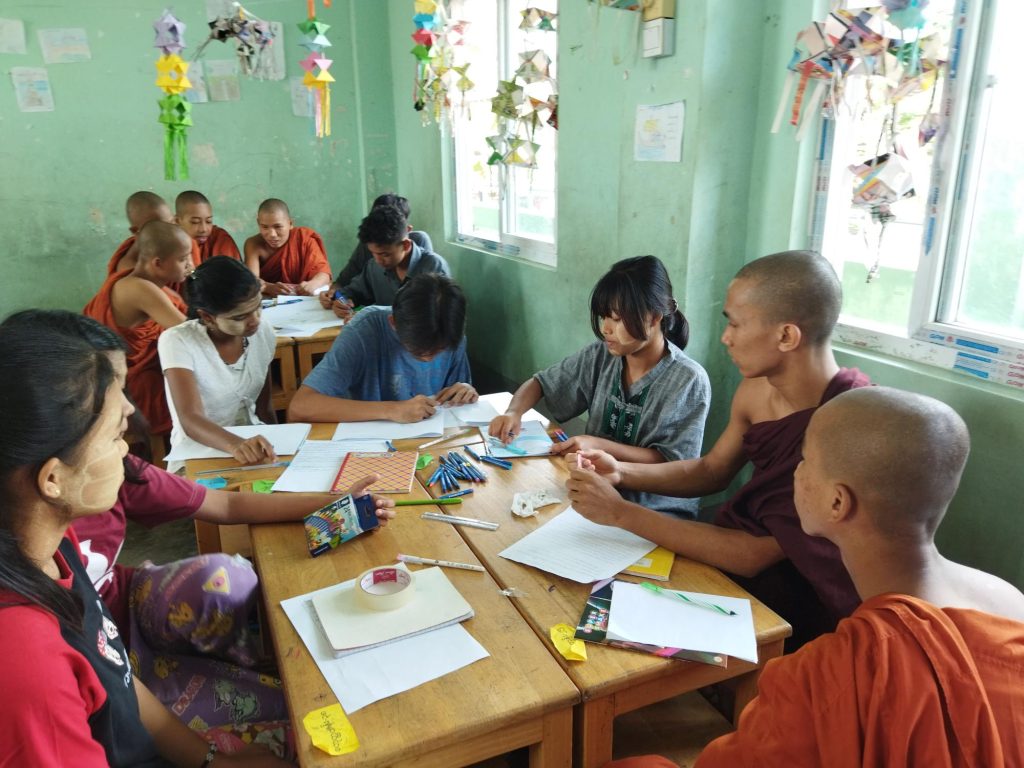“More than 50% of the students changed their behaviour” – counseling is making a difference in Myanmar
In Myanmar, Career Guidance and Counselling (CGC) is improving student and teachers’ school experience. FCA and the Teachers Without Borders network have conducted extensive teacher training since 2019 to enhance counselling sessions with children.
BULLYING, DROPPING OUT and lack of financial support are some of the most common issues face by students attending school in Myanmar, where 40% of the population live below the national poverty line.
In 2019, FCA started conducting extensive training for teachers in counselling and career guidance. Initially conducted in the capital, Yangon, in 2022 FCA extended the project to Mon State.
The project’s primary objectives are to introduce, support, and promote CGC in alternative education systems in Myanmar, specifically targeting monastic schools, faith-based schools, and mother-tongue-based education systems operated by ethnic education service providers.

These schools follow the national curriculum and have the added attraction that they provide education free of charge. However, they only go to grade 8 and do not provide a primary school graduation certificate, which is only available in fee-paying government-run schools.
But many do not even make it to grade 8. Many parents find it hard to support their children in school, often needing them to work at home or encouraging older children to seek work abroad where pay is better.
Following success in Cambodia, leading to career guidance counselling being included as part of the national curriculum, FCA started training teachers in Myanmar on career guidance as well as counselling to improve childrens’, parents’ and teachers’ experiences in school.
Rewarding work
Daw Ohnmar (not her real name, due to security challenges in the region) has been a teacher for nine years.
She participated in Learning and Career Guidance and Counseling Training in 2019 conducted by FCA’s Teachers Without Borders (TwB) volunteer network. The outcomes were significant.
Immediately after completing training, she provided group counseling to over 100 students and individual counseling to eight. During the pandemic, she kept going, giving advice remotely over mobile phone to 50 students.
As of the end of 2023, she has conducted 15 individual counseling sessions, which take up much more time and resources, but enable her to focus more on individual issues. She says it’s rewarding work but can also be emotional when factors outside of her control come into play.

“More than 50% of the students who received counseling sessions changed their behaviour. For example, students made promises to me to quit smoking and proved it through their action. They also started following the classroom rules more diligently. I also observed improvements in their relationships with parents and friends. I am proud of the cases that I was able to handle successfully.
But, there were a few cases that I was unable to manage. For example, two students got married and dropped out of school, both of whom were in Grade 10. I felt sorry as I was unable to reach my students during the pandemic.”
Two TwB in-house trainers observed group counseling sessions, providing feedback to enhance teachers’ counseling skills and assisting teachers to also apply effective teaching techniques in their regular classroom activities.
To measure the classroom impact, FCA Myanmar conducted a longitudinal study in which counsellors reported an improved attitude. They sought to avoid physical punishment and utilise more positive language and communication. This shift in attitude can be attributed to the impact of CGC training and its emphasis on child rights.

Managing her emotions effectively
Ma Yamin (not her real name), a 17-year-old girl at Dhammadipa Monastic School, faced emotional distress due to her mother’s second marriage, family financial hardship, and difficult relationships with friends.
One of her biggest challenges was that her mother wouldn’t allow her to go to school and insisted on her working despite her strong desire to obtain an education. Her mother often discarded her books and the essays she wrote.
As a coping mechanism, Ma Yamin, spent most of her time alone, sleeping, which helped her avoid interactions with others at home. She eventually had to leave school.
After she left school, CGC counselors reached out to her friends and arranged a meeting with her mother, resulting in her return to school. Engaging in group counseling sessions, Ma Yamin noticed improvements in collaborative skills and gained the confidence to speak out. Individual counseling sessions further helped her express her emotions freely. Despite ongoing problems at home, Ma Yamin can now manage her emotions effectively, encouraged by her teacher counselor.
“After experiencing the CGC individual counseling session, I felt a sense of relaxation and realised that I had a dedicated teacher counselor who would genuinely listen to my feelings even though my mother may not want to listen to my words.
My counselor not only listened to my words but also provided encouragement and guidance to help me find my way towards self-improvement. I finally found a safe place to express my emotions freely, even allowing myself to cry as it’s all kept confidential.”
Ma Yamin was taught healthier coping and calming mechanisms, such as the ‘butterfly hug’ a self-implemented stimulation method that can help bring someone back to the present moment and calm their emotional state.

“Since participating in counseling sessions, I’ve become more involved in household chores and have better communication with my family, rather than isolating myself. Furthermore, I began sharing the knowledge I gained in group counseling sessions with children and elders in my community. I also encouraged my friends to consider individual counseling sessions at schools by sharing my journey.”
At Ma Yamin’s school -Dhammadipa Monastic Education Middle School – FCA provided counseling to 343 out of 615 students including 117 females from Grade 4 to Grade 12 in the 2023-2024 alone.
In addition to training days, the career counsellors received mentoring from volunteers of the Teachers Without Borders network. To further support their work, they will receive a guidebook in the Burmese language with a wide range of concrete guidelines, classroom activities, and useful information.
Learn more about our work in Myanmar